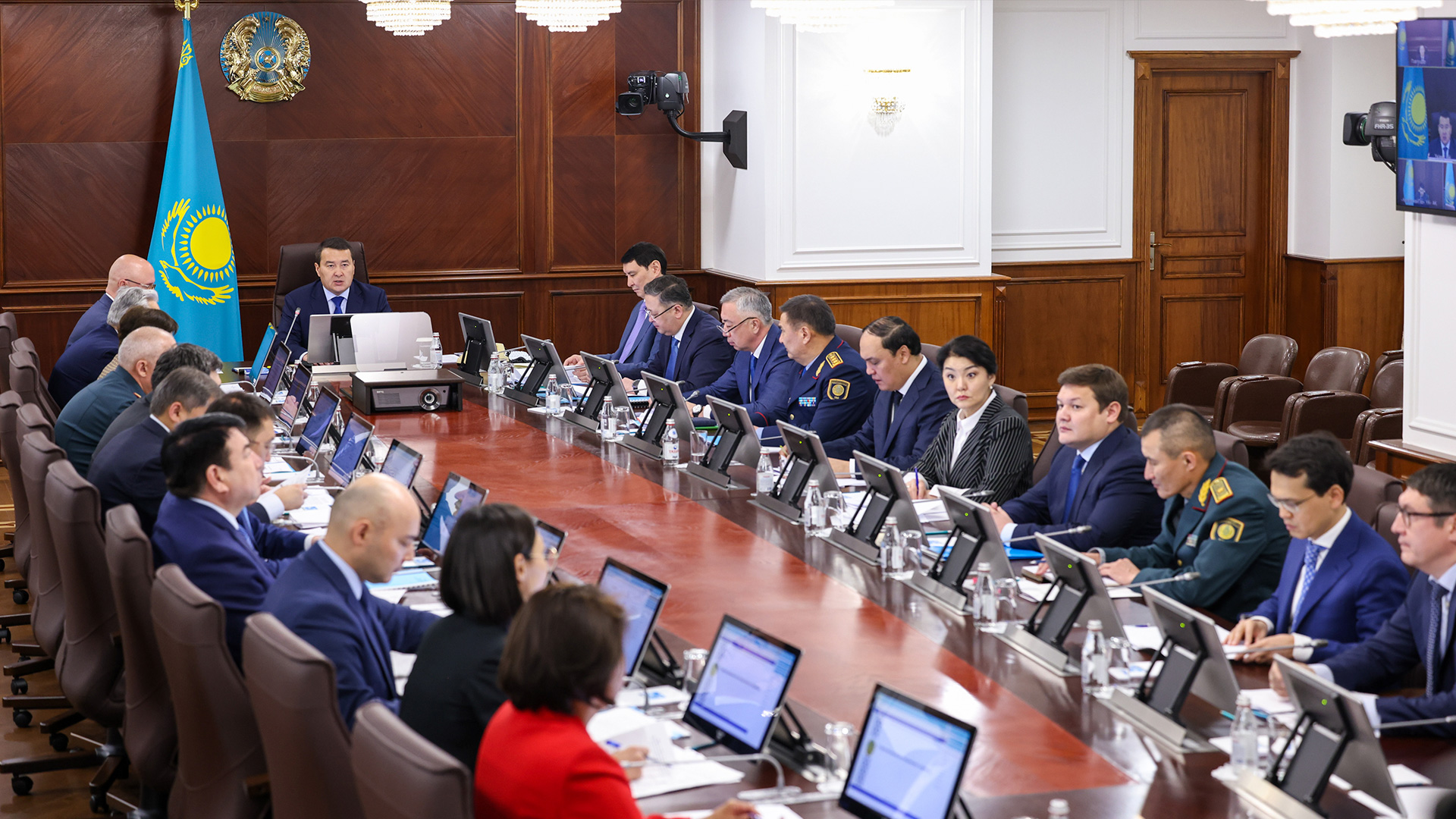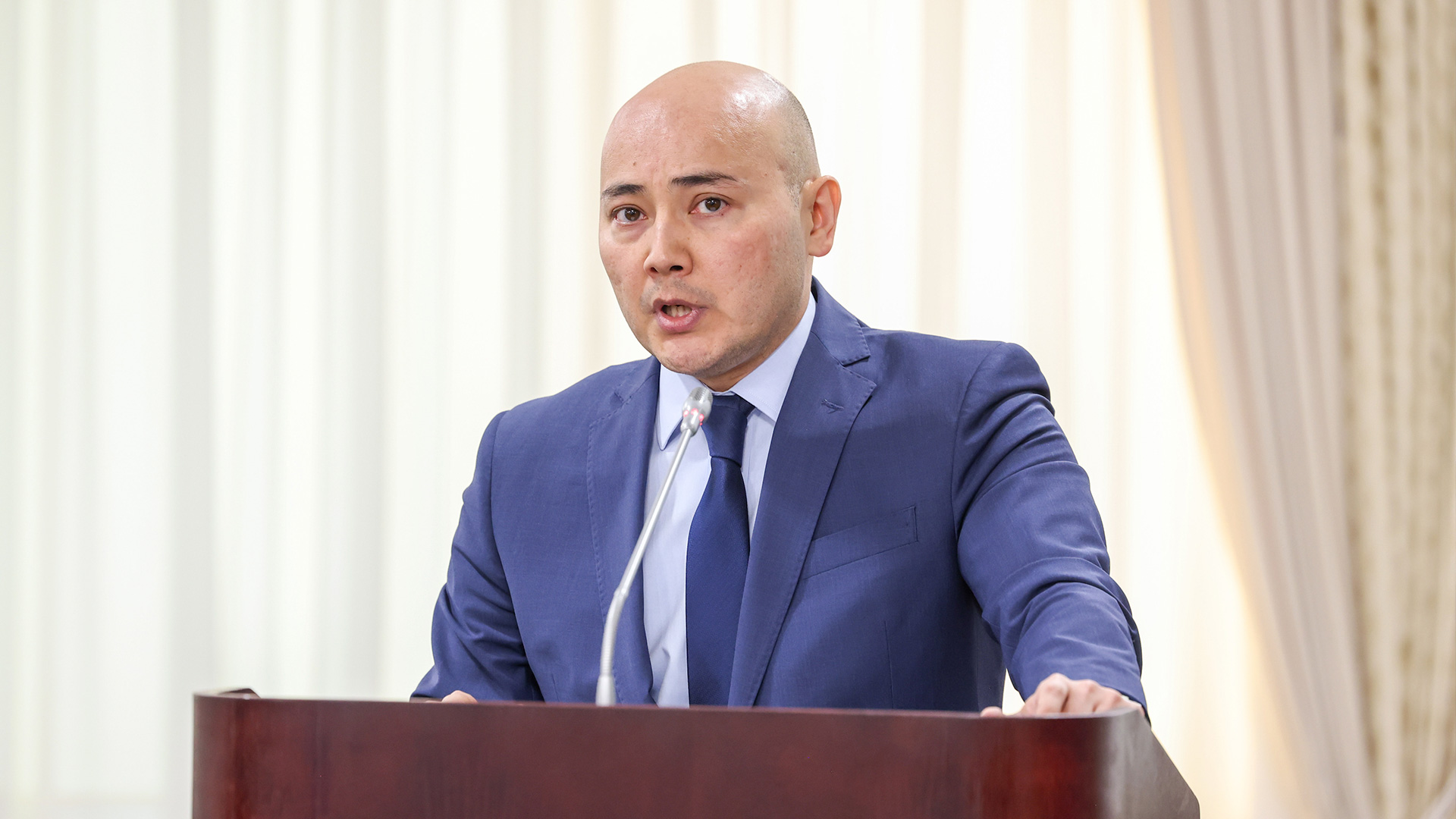04 July 2023, 11:34
 The measures to further improve the business climate in Kazakhstan were considered at the Government session, chaired by Prime Minister Alikhan Smailov.
The measures to further improve the business climate in Kazakhstan were considered at the Government session, chaired by Prime Minister Alikhan Smailov.
The Minister of National Economy Alibek Kuantyrov reported that at the end of last year the number of operating small and medium enterprises in the country increased by 23.4% to about 2 million businesses. The total number of employed in this sector increased by more than 18% up to 4.1 million people. In general, today about 40% of all people employed in the economy work in SMEs. The output of SMEs also increased by 28% to more than 59 trillion tenge.
In order to further improve the business climate, work is being done to introduce a new regulatory policy for entrepreneurs, in particular, to abolish redundant and outdated requirements. In addition, the automation of risk management systems in all areas of state control and supervision is underway. It will allow to appoint checks of business without human participation from January 1, 2024. It is expected that as a result the number of planned inspections will be reduced by 2 times.
 The Minister added that 46 thousand projects were subsidized and guaranteed within the framework of SME support in 2022. This year allocated more than 266 billion tenge budgetary funds, which is almost 100 billion more than last year.
The Minister added that 46 thousand projects were subsidized and guaranteed within the framework of SME support in 2022. This year allocated more than 266 billion tenge budgetary funds, which is almost 100 billion more than last year.
Deputy Chairman of the Board of Atameken NCE Timur Nakhipbekov, Akim of Almaty region Marat Sultangaziyev, Akim of Pavlodar region Assain Baykhanov and First Deputy Akim of Astana city Nurlan Nurkenov also informed us about the ongoing work.
As Alikhan Smailov mentioned, development of entrepreneurship is one of the strategic directions of the social and economic development of the country. Thus, the share of small and medium business in the economy by 2030 should exceed 40%. To do this, we have implemented systematic measures to support the domestic business, and the Government jointly with the Atameken NCE is improving the legislative framework in this area.
Along with this, the new Tax Code, which will significantly simplify tax administration with full digitization of all its processes, is currently being developed. Also, since last year, measures to improve the regulation of entrepreneurial activity "from scratch" are being implemented. In parallel, the necessary work to automate systems of state control is being carried out.
Prime Minister added that as part of policy documents businesses are provided with measures of financial and other support. Only in the 5 months of this year subsidized more than 6 thousand projects totaling about 440 billion tenge. Besides, it is already guaranteed over 4 thousand projects to the amount of 144 billion tenge.
"As a result of the measures taken, the share of small and medium-sized businesses in GDP rose by more than 3 percentage points to 36.5 per cent last year. And we have to keep this dynamic," Alikhan Smailov said.
However, he pointed out that over the past two years, four regions have shown weak growth dynamics in the number of employees in small and medium-sized businesses. These are Akmola, Kostanay, North Kazakhstan and Pavlodar regions. However, their potential to develop small and medium-sized businesses, increase the number of people employed in them.
According to him, a number of regions also have a high level of shadow economy. These include Almaty, Atyrau, Karaganda and East Kazakhstan regions and the cities of Astana and Almaty.
"The way out of the shadows largely depends on accessibility, convenience and comfort of doing legitimate business. We need to step up measures to reduce the shadow economy. There is a corresponding Comprehensive Plan which should be strictly implemented. Only then we can see the real results of work done in this direction," the Prime Minister said.
As Alikhan Smailov noted, today the republic faces a difficult situation in the global economy, which also affects the domestic market. However, this opens up new opportunities for Kazakhstan.
For example, today business is mainly concentrated in large cities, so it is necessary to improve and expand its opportunities in single-industry towns and small settlements.
"For this purpose support is provided within the framework of the projects "Auyl Amanaty", "Auyl Yel Besigi", development of mono- and small towns, "Economy of Simple Things" and the Business Road Map 2025. State agencies together with the Atameken NCE and the regions need to ensure their qualitative implementation on the ground," the Head of Government pointed out.
In addition, we need to expand the potential of non-resource industries, including the manufacturing industry. This applies to the modernization of fixed assets and introduction of new technologies.
Along with this it is necessary to accelerate the work on the abolition of unnecessary regulatory requirements, as well as on the automation of state control over business.
"By the end of the year we should see the result for each industry," Alikhan Smailov emphasized.
He added that according to the analysis data, complaints and appeals of business mainly relate to the spheres of land relations, public procurement, tax administration, architecture and town planning and infrastructure provision.
"State agencies together with the regions need to qualitatively and timely consider all appeals coming from the business," Prime Minister said.
In conclusion, he stressed the need for high-quality training of qualified specialists, especially for high-tech industries, as well as measures to adapt the system of training and education to modern requirements.
#Alikhan Smailov #The Prime Minister of the Republic of Kazakhstan #Government session #SMEStay updated about the events of the Prime minister and the Government of Kazakhstan - subscribe to the official Telegram channel
Subscribe